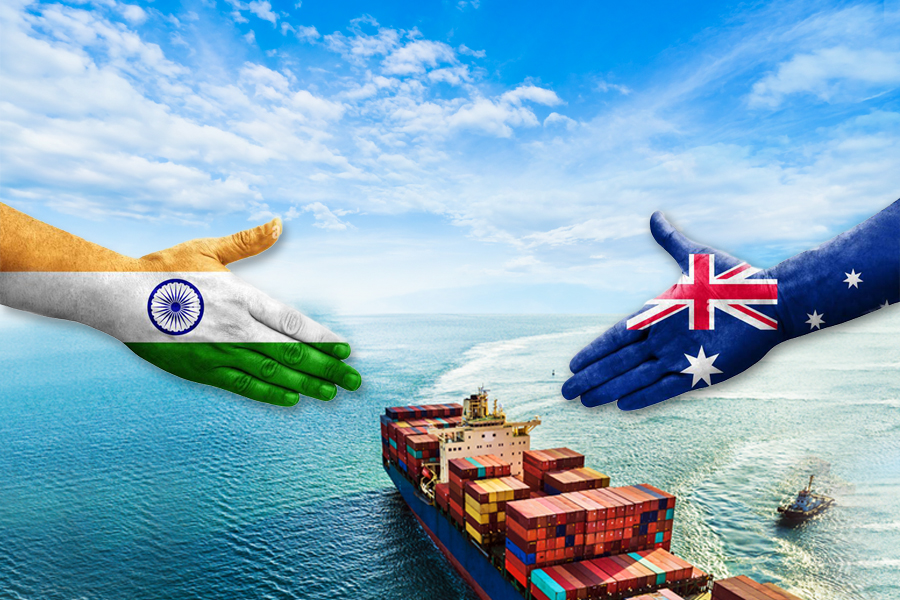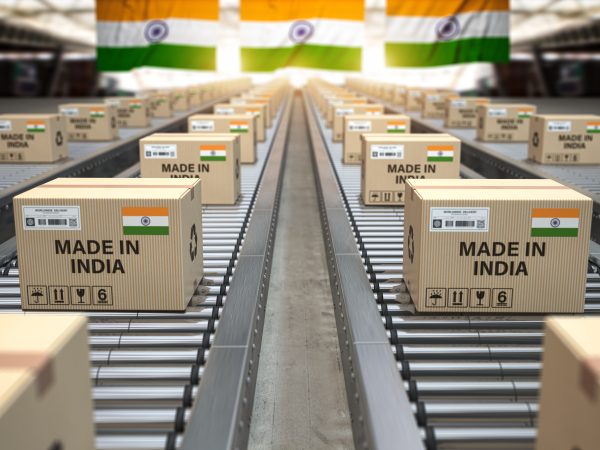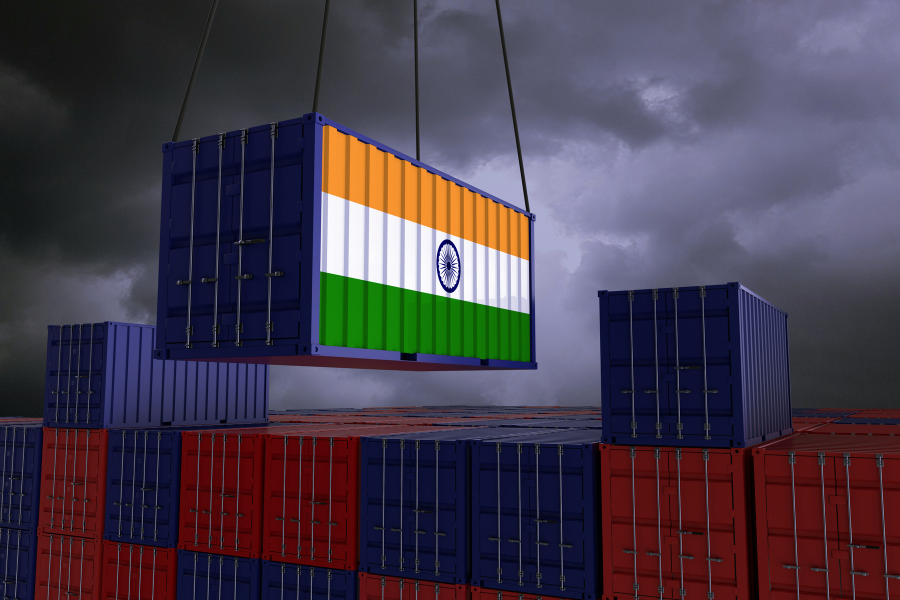India’s Major Push Towards Invest India Offices Abroad; Talks Lined Up With Australia And EU Laying A Strong Foundation.
The Indian government is actively taking significant steps to establish and facilitate trade, both domestically and internationally. The government aims to streamline engagement with foreign investors and enhance bilateral trade relations particularly with key partners like Australia and the EU by launching initiatives such as the opening of Invest India offices abroad.

Commerce and Industry Minister Piyush Goyal announced on Sunday plans to establish Invest India offices in various countries over the coming months to support foreign investors seeking opportunities in India.
The first of these offices was inaugurated in Singapore, aimed at serving as a key contact point for businesses in the region looking to invest in India.
This initiative underscores India’s commitment to strengthening investment partnerships and simplifying global investor engagement with the Indian economy.
“The Singapore office will act as a dedicated touchpoint for companies across the region, facilitating collaboration across multiple sectors,” the commerce ministry stated in a release.
Housed within the Singapore office is the National Industrial Corridor Development Corporation Ltd. Speaking at the event, Goyal emphasized Singapore’s role as a strategic partner for India, marking this move as a significant milestone in India’s efforts to enhance economic ties with Singapore and the ASEAN (Association of Southeast Asian Nations) region.
“We intend to open additional Invest India offices globally in the coming months, with the goal of offering investors seamless access to India’s dynamic, expanding economy,” Goyal added.
The opening of the Singapore office holds particular importance as the country remains India’s largest source of foreign direct investment (FDI).
In 2023-24, India attracted $11.77 billion in FDI from Singapore, maintaining its top position since 2018-19. In the previous year, Mauritius had led the FDI inflows.
Other significant FDI contributors include Mauritius, the United States, the United Kingdom, the UAE, the Cayman Islands, Germany, and Cyprus.
During his interaction with guests and media, Goyal spotlighted India’s ambitious industrialization efforts, including the development of semiconductor and shipbuilding industries.
He noted that investments continue to flow into India, and the Invest India office will streamline the process for global businesses looking to participate in India’s economic growth.
According to Rumki Majumdar, Economist at Deloitte India, Singapore, as a major financial hub, attracts global investors eyeing opportunities in Asia.
Government data revealed that foreign direct investment into India surged by 47.8% to $16.17 billion in April-June this fiscal year, with strong inflows into the services, IT, telecom, and pharmaceutical sectors.

India-Australia Investment Talks, Goyal to Meet CEOs This Week
Commerce and Industry Minister Piyush Goyal is set to meet with Indian and Australian CEOs this week during his visit to Australia from September 23-25, aimed at exploring investment opportunities.
He will co-chair the 19th India-Australia Joint Ministerial Commission meeting with Australia’s Minister of Trade and Tourism, Don Farrell, in Adelaide on September 25.
The visit is expected to further strengthen the robust trade and investment ties between India and Australia, particularly following the recent finalization of the Economic Cooperation and Trade Agreement (ECTA).
Discussions will focus on enhancing bilateral economic engagement, with a particular emphasis on critical minerals, manufacturing, education, renewable energy, infrastructure, tourism, and space.
This visit comes at a crucial time as India and Australia have implemented an interim trade agreement and are negotiating to expand this into a comprehensive pact.
Bilateral trade has recently dipped to $24 billion in 2023-24, down from $26 billion in 2022-23, with trade favoring Australia; India’s exports amounted to $7.94 billion, while imports reached $16.15 billion.
Australia ranks as the 25th largest investor in India, with foreign direct investments totaling $1.5 billion from April 2000 to June 2024.

India and EU to Launch Next Round of Free Trade Pact Talks on Monday
India is also looking to strengthen its trade agreement with the European Union (EU) as senior officials from India and the 27-nation bloc prepare to commence the next round of negotiations for a proposed free trade agreement on Monday.
The agreement aims to enhance bilateral trade and investment between the two regions.
The five-day talks, starting September 23, will be the ninth round of negotiations, focusing on a free trade agreement, an investment protection agreement, and an agreement on geographical indications (GIs).
Indian stakeholders have raised concerns regarding EU sustainability measures, such as the Carbon Border Adjustment Mechanism (CBAM) and deforestation regulations. These issues will be addressed during the discussions.
The CBAM, which will take effect on January 1, 2026, is expected to impose a carbon tax on seven carbon-intensive sectors, including steel, cement, fertilizer, aluminum, and hydrocarbons.
Indian firms are particularly worried about how these regulations could impact the country’s exports to the EU, especially given that the European Union’s Deforestation Regulation (EUDR) is projected to affect Indian agricultural exports worth $1.3 billion starting in December 2024.
According to the Global Trade Research Initiative (GTRI), Indian companies fear that the carbon tax, deforestation regulations, and supply chain regulations could negatively impact their exports.
After the trade agreement is implemented, while EU products will continue to enter India duty-free, Indian products may face tariffs equivalent to 20-35% due to CBAM charges.
GTRI Founder Ajay Srivastava suggested that a suitable clause addressing this scenario should be included in the trade agreement.
Negotiations between India and the EU resumed in June 2022 after being stalled for over eight years due to unresolved issues since 2013.
From 2007 to 2013, several rounds of negotiations were held but faced challenges due to disagreements over market access, intellectual property rights, labor standards, and sustainable development.
By 2013, the discussions reached an impasse, largely due to differences over tariffs on automobiles, wine, spirits, data security for Indian IT firms, and public procurement,” the report stated.
It noted that a significant factor in the delay is the differing aspirations of both parties.

The EU aims for tariff elimination on over 95% of its exports, including sensitive agricultural products and automobiles. In contrast, India is willing to open around 90% of its market but is hesitant to reduce tariffs on bulk agricultural products, according to the Global Trade Research Initiative (GTRI).
GTRI Founder Ajay Srivastava emphasized that major Indian exports to the EU, such as ready-made garments, pharmaceuticals, steel, petroleum products, and electrical machinery, would become more competitive if the agreement is successfully concluded.
Key services exports, including telecommunications, business services, and transportation, are also expected to experience significant growth.
Conversely, the EU stands to gain from increased imports of essential goods from India, such as aircraft and parts, electrical machinery, diamonds, and chemicals.
“The services sector will benefit from the free trade agreement (FTA), with enhanced trade in business services, intellectual property services, and telecommunications and IT services. These sectors are poised to drive economic growth and strengthen India’s trade relations with the EU,” Srivastava added.
Total trade between India and the EU exceeded $200 billion in 2023, with India exporting $75.18 billion in goods and $31.13 billion in services, while the EU exported $63.44 billion in goods and $31.35 billion in services to India.
The Viewpoint
The Indian government is actively taking significant steps to establish and facilitate trade, both domestically and internationally by launching and establishing the opening of Invest India offices abroad.
At the same time, through high-level meetings and negotiations focused on trade agreements, India is working to address concerns around market access, tariffs, and sustainability measures.
The focus on enhancing cooperation in critical sectors such as manufacturing, renewable energy, and services emphasises the government’s goal of creating a more conducive environment for investment.
Moreover, the ongoing dialogues with the EU aim to expand trade ties while balancing the aspirations of both parties, which could lead to increased competitiveness for Indian exports and growth in essential imports from the EU.
As total trade continues to rise, these concerted efforts reflect India’s strategic vision to enhance its position in global trade, ultimately driving economic growth and prosperity for its citizens.




